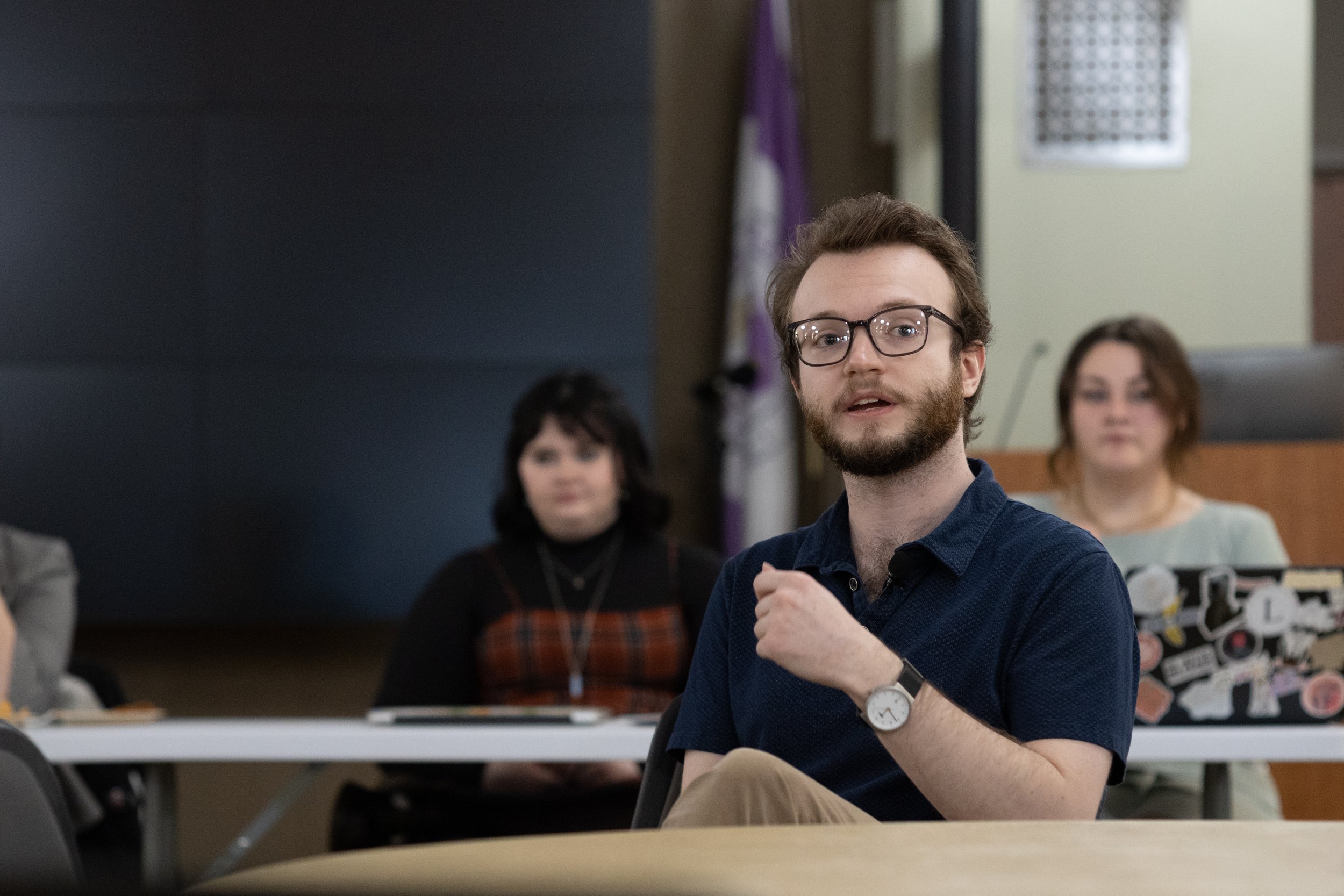What is Chatham Student Government?
Chatham Student Government Executive Vice President Aidan Bobik ’24 speaks during a meeting. (Kyle Ferreria).
Chatham Student Government (CSG) elections are open to first year students until Sept. 8. First years at Chatham University will be able to run to represent their graduating class as a member of their class board, just like Jackson Adkins did two years ago.
“I submitted my name, I had a little campaign, I told my teammates to vote for me for vice president,” Adkins ’25 said. “I won a vote, and I was elected in September of my freshman year.”
Adkins, now executive president of CSG, knows that student government’s structure and processes can seem opaque and confusing to outsiders. But he also thinks that CSG can be a way that people can make life on campus better.
“I guess what kept me coming back is, I saw progress,” he said. “The gratitude from getting something done has always been really encouraging.”
What is Chatham Student Government?
CSG’s Executive Board structure:
Executive President
Executive Vice President
Vice President of Student Communications
Vice President of Student Finance
Vice President of Diversity and Inclusion
Class Presidents
CSG is the group of undergraduate students elected by their peers to represent the undergraduate population of Chatham. Each class has its own “class board,” made up of these positions: president, vice president, secretary, treasurer, and three representatives.
The four class presidents are all part of the executive board. Also on the executive board are the executive president, executive vice president, and three other vice presidents.
These groups come together in weekly meetings, known as the senate.
Where and when does CSG meet?
CSG senate meets every Thursday at 11:30AM in the Conover Room in Mellon Center.
“This is where we bring up ideas, we work on legislation, passing internal budgets— this is where we have the big discussions,” said Aidan Bobik ’24, CSG’s executive vice president.
“During that time, we go through all our committees, all our class boards,” Adkins said. “We get updates on where all our projects are, what our visions are for the future.”
These meetings are open to everyone on the campus community, and students can speak to the collective student government body during the open forum portion of the meeting.
What does CSG do?
Jackson Adkins ’25 is CSG’s executive president.
“I think one of the biggest misunderstandings is that student government doesn’t do anything,” Bobik said. A lot of the work they do is behind the scenes, he added, like speaking to dining services to address student ideas or concerns.
The executive board also has different committees that handle various issues on campus and are open to all students, not just CSG members. The undergraduate budget committee, for example, requests funds from the University for student groups and projects.
Each of the class boards work on yearlong projects dedicated to improving the school; past projects include designing reusable cups for Cafe Rachel and increasing availability of sexual health products on campus.
How can students get involved?
Elections are typically held during the spring semester, and winning candidates serve in their position for a full year. First-year students are the exception; they are elected during the fall semester.
There are ways students can influence campus life without being elected to student government, Bobik said, by joining a committee, showing up to regular CSG meetings, or talking to student representatives at town halls.
“I think some people might think student government is a scary thing, with a lot of lingo and procedures,” Bobik said. “It’s not some fancy, formal thing. It’s not the U.S. Senate. … We want folks to enjoy student government, so if they have questions, we’re always open to help.”
First years have until Sept. 8 to join CSG by filling out a form for candidacy. All students can attend weekly CSG meetings on Thursdays at 11:30AM in the Conover Room in Mellon Center.


